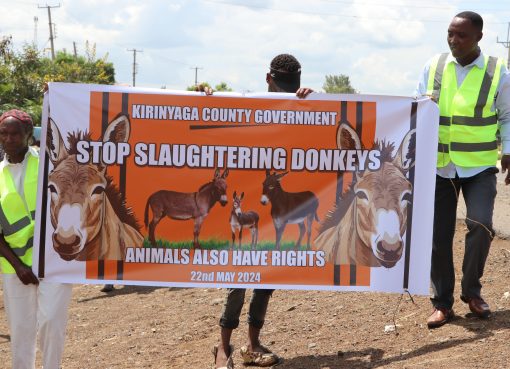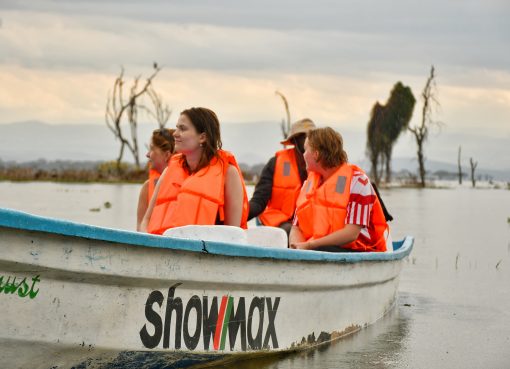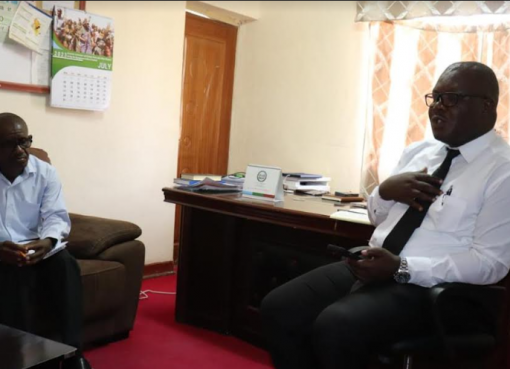
Tharaka-Nithi County being a county that transverses a number of vegetation types, ranging from the Mt. Kenya forest in the West to the savannah grasslands as you approach the Meru National Park to the North Eastern side is known for a variety of cash crops such as tea, coffee, tobacco and cotton.
In Chuka–Igambang’ombe constituency that borders the Mt. Kenya forest that is blessed with rich volcanic soils and high and reliable rainfall the major cash crops have been tea and coffee.
As one approaches the neighbouring Tharaka constituency the soils become sandy and rainfall is not reliable with farmers trying their hands in the cultivation of maize, beans and millet whenever there are signs of rains. The residents of the area are not economically endowed due to the perennial low yields from their crops.
However, a group of women from the area now have a reason to smile after their local chief introduced the cultivation of the little known sisal as a cash crop in Kithangani location in 2008 on a very small scale enabling the women to put food on their tables and pay school fees for their children.
Kithangani means the sandy area in the local Meru dialect. Being a group of early innovators, Kithangani women group that was formed in 2013 embraced the cultivation of sisal and decorticated their first crop as a group in 2016. To date, the group has over 30 acres of sisal farms which unlike the sisal plantations in Kilifi and Taita-Taveta counties are in relatively small different private lands. Other residents of the area have seen the intrinsic value of cultivating sisal and are joining the group.
From the initial membership of 15 members, the group has swelled to over 30 members obviously attracted by the good earnings from the previously unknown crop in the area.
Ms. Mary Gakii, the chairperson of Kithangani women group told KNA that they are earning a fortune from the sisal which sells at Sh. 80 per kilograms, thanks to Premier Cordage factory in Juja, Kiambu County which has supplemented the local weavers.
“I have seen that there is nothing to regret for when you shift to sisal, it is much heavier when weighed against maize and beans which we were growing before, in fact we are very pleased with the outcome,” said Ms. Gakii.
Ms. Agnes Wanja who is the treasurer, said that they have been able to take their children to school and they can hardly sleep without food since they have somewhere they expect money at the end of the day.
“We are really earning good money from this crop. Our children can’t go starving neither can they be sent away from school, we are already seeing a bright future ahead of us,” said Ms. Wanja.
According to her with Sh 80 per kilogramme, one of the members, Agnes Muthoni was able to make Sh 28,000 from 35kg of first grade sisal after she sold the product to Premier Cordage factory. They have been able to sell some of their products to traders engaged in rope and basket weaving and they are aiming to sell more with time.
However, their journey has not been a bed of roses. When their cultivation of sisal kicked off they were advised to intercrop sisal bulbils with food crops like maize, beans and millet for the first two years since sisal matures in three to five years depending on the weather conditions, and capitulates satisfactory for another five years, thereafter harvesting the plant takes three months to sprout and ready for re-harvesting.
Even when the time comes for harvesting the hitch comes with the scarcity of decorticating machinery.
Nyaga Kainga, the group coordinator said that they have a single decorticating machine making it difficult to cover all the farmers through delivering door to door sisal decorticating services to them.
The group’s coordinator requested the government to chip in and exploit this great opportunity by providing additional decorticating machinery and building a factory in the area as this will go a long way in promoting the achievement of vision 2030 and the Big Four Agenda.
Chief Nyamu Ragwa is the one who initiated the idea of planting sisal in the area as he had helped the women acquire sisal seedlings from Kiambu where he was working and supported the group till he passed.
With the help of Upper Tana Natural Resource Project, supported by the International Fund for Agricultural Development, the group was able to get a motorized decorticating machine, which aids in removing the green part of the sisal leaf.
Other than the machine, the project also helped them build a store where they could keep the decorticated sisal, fence the piece of land where the store is and get water supply, after writing proposals to the project management. The locals no longer have to depend on food crops and the sandy area could soon be transformed into an agricultural manufacturing centre.
By Eva Wangechi/David Mutwiri





